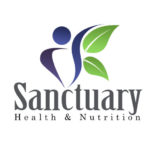New European rules this month will question eating fruit, vegetables, oily fish, grains, eggs, nuts and poultry are examples of a ‘healthy diet’.
The Nutrition and Health Claims regulations were brought in to ban misleading or unproven claims on food and drink products, such as weight-loss promises or claims about mental function or heart health. In their place will be a list of health claims authorised by the European Commission.
It means that websites, labels and even brand names will be affected. Gone will be Slimfast, for instance, as there is not enough scientific proof that it helps people slim.
Consumer groups have welcomed the demise of unregulated health claims, but dieticians are unimpressed. Why? Because many of the foods on the newly approved list are processed ingredients, while many foods that cannot make health claims are obviously good for us, such as tomato juice, honey, pumpkin seeds and broccoli.
So if you’re starting a health kick, what should you be eating according to the European Commission and its expert panel?
‘HEART HEALTHY’
IN Plant stanol esters or plant sterols are the active ingredient in some products that claim to reduce cholesterol.
You need 3g daily to reduce the bad LDL cholesterol by ten per cent but you can get this from only two UK brands, Benecol and Flora Proactive, as the ingredients are patented.
Products containing Omega-3 fats can also make this claim.
OUT Soya. Despite several clinical trials showing that soya foods can maintain healthy blood cholesterol levels, the claim was rejected because the scientific panel didn’t know if the effect came from the soya protein or other natural substances in the soya.
MY VIEW It’s still worth eating soya foods for heart health because it doesn’t matter if we can’t nail down the detail, it does have an effect. Oats, also good for us, did get a positive opinion from the EC for heart health.
‘MAINTAINS NORMAL BOWEL FUNCTION’
IN Lactulose, that sugary substance prescribed for old people and toddlers – a large tablespoon will get you going. Activated charcoal was also highlighted as a cure for flatulence.
OUT Probiotics. There were many positive studies but the panel was unclear which strains are best. Prunes were almost banned, but when an MEP challenged the European Commissioner to a prune-eating contest, he relented and put them on the approved list.
MY VIEW Go for the natural solution of prunes.
‘KEEPS YOU FULLER LONGER’
IN Hydroxypropyl methylcellulose fibre. Never heard of it? Me neither. But now, because it can claim to keep blood sugar levels stable, it will probably become a common additive to lots of foods.
OUT Saying something is ‘low GI’ and will keep blood sugar stable, because there are so many low GI foods that EU experts dismissed this area. Also out are high-protein foods that claim to keep you fuller for longer, as the panel thought the studies were too short and didn’t account for other nutrients. Calorie-controlled diets were not even assessed for a claim.
MY VIEW The evidence for low-GI foods, such as oats, pasta, wholegrain rice and pulses, is good, with no side effects.
‘ENERGY BOOSTING’
IN Magnesium and B vitamins, such as riboflavin, B6 and niacin. These are now being added to energy drinks – usually alongside stimulants such as caffeine. Only 15 per cent of the Recommended Daily Allowance is needed per 100g for manufacturers to make a claim.
OUT Tea. Despite good evidence that small amounts of caffeine, such as those found in tea, perk you up, a claim (plus a health warning) was given only to high-dose caffeine products.
MY VIEW Tea is a healthier source of caffeine than energy drinks, as it’s naturally sugar-free and released at a slower rate.
‘MAINTAINS IMMUNITY’
IN Vitamins A and C which means that Ribena, a syrup containing five per cent fruit, can make an immune claim due to its added vitamins.
OUT Broccoli, as most of the studies weren’t controlled enough and the panel thought there was too much variation in broccoli species. Manuka honey was also rejected because the composition varies depending on the source.
MY VIEW Stick to the natural stuff. Carrots and spinach are rich in Vitamin A, while kiwi, oranges and kale provide enough Vitamin D.
Views by Carrie Ruxton, registered dietician
Read more: http://www.dailymail.co.uk/health/article-2245083/The-new-EU-rules-say-additives-healthier-broccoli.html#ixzz2F7ZPu7Sr
